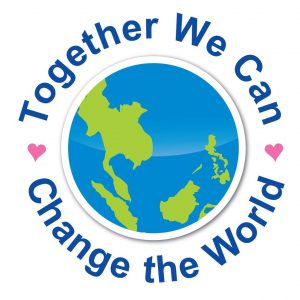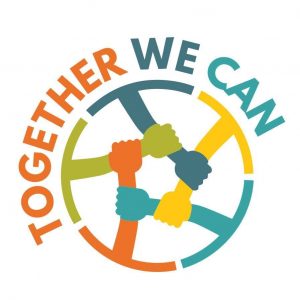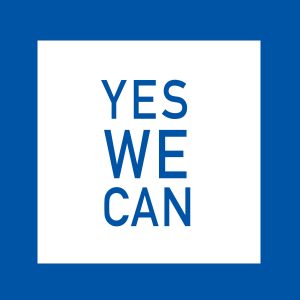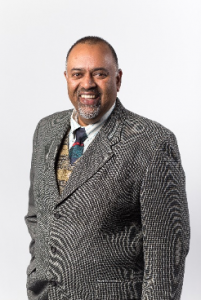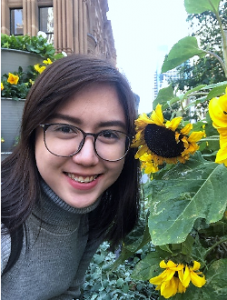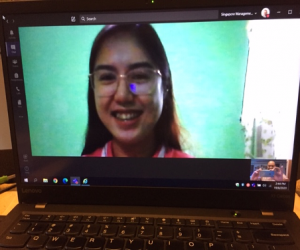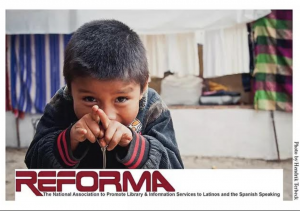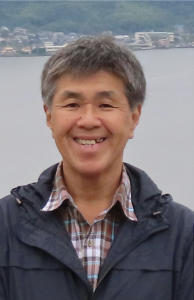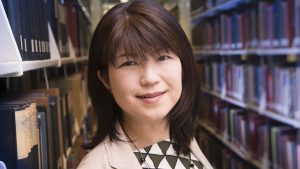Colleagues, we are excited to announce the our sixth episode (and final episode for season 1) of the CPDWL Podcast Project where we feature library and information professionals who support and participate in professional development work.

Our guest is Wanda Kay Brown, the American Library Association’s Immediate Past President, CPDWL member and the Director of Library Services for the C. G. O’Kelly Library in Winston-Salem State University in North Carolina.
See here for the podcast: https://anchor.fm/ifla-cpdwl/episodes/CPDWL-Podcast-Project-Episode-6-Wanda-Kay-Brown-ehjjca
Transcript:
Ray
Hi, this is Raymond Pun, Welcome to the IFLA CPDWL Podcast Project. In this space, we talk with library and information professionals who support and participate in professional development work. Today’s guest is Wanda Kay Brown, the American Library Association’s Immediate Past President, CPDWL member and the Director of Library Services for the C. G. O’Kelly Library in Winston-Salem State University in North Carolina. Welcome Wanda!
Wanda
Thank you. Ray. It’s a pleasure to be here.
Ray
We are really excited to have you here to speak with you on your, your journey to librarianship and your work. And so, a question here for you is if you had to describe yourself using only one word, what word would that be?
Wanda
I thought about that, I actually thought of two words. But I’ll go with the first one which I thought was “genuine.” And I say that because I try in all things to be authentic. And I think that that’s an important trait. I think people should just be themselves and then embrace who they are and how they are and just be sincere and be dependable and be all things to all people. And I think you can do that as long as you’re genuine. You know? Does that make sense?
Ray
Yeah, what was the other word?
Wanda
Sincere, it was between the two: sincere or genuine – I realized they are both, well, you know, they’re connected together sometimes we look for words that give us power and strength, but I just want to be me, because I think that I am a person who, when you find me one day you’ll find me the same way the next, right? I’m just me, I’m sincere, I’m earnest, I am, I think committed. And I think I’m committed to accepting that all people are different. And that we embrace that difference. And if we embrace that difference, we’ll be sincere.
Ray
Certainly, important traits here. And so, what compelled you to become a librarian. How did you get started?
Wanda
Okay, so, let me tell you. I worked as a library student assistant, when I was in college. Even though I was pursuing, I had a certification in secondary education. So, I did my student teaching at a time when they were just trying out the team-teaching approach. And I must admit that I did my student teaching in a place that wasn’t, I’m gonna say the “most culturally sensitive” place then it was to do it. So, I kind of decided you know I’m not sure I want to do this teaching, I just wasn’t sure after that student teaching experience so I was sure one thing and that was I didn’t really want to leave what’s the Salem, so I’d come here from northeastern part of North Carolina to go to school and I want to talk about going back so I decided I would start looking for work. And of course, everywhere you go, people would want to know what kind of experience do you have. So, what I had was three years as a student assistant here at this very library that I’m working at now, C.G. O’Kelly Library, so you do. Okay. So, I went to unemployment security.
And they said “Well Wake Forest University has a position that actually requires a Master’s,” but it was funded by the city of Winston Salem when it was called the “city employment training act,” so they were trying to get minorities to work on that campus. So, I went, I interviewed, I got the job right so after that one year in that training position. They offered me a full-time position and then the next year I decided, “you know what I think I like this I think I’ll go to the school” and so I worked full time and went back to library school, went to library school. After my maybe second year working? I went to library school so that’s how it all got started for me.
Ray
Wow. So, you started out as a student assistant in the library that you are now the director of it?
Wanda
Right, yes, absolutely.
Ray
That’s quite a, quite a story. And so, we’re really curious as part of IFLA, our focus is always on building bridges and connecting with folks from all over the world. We are curious about your thoughts on global librarianship what does that mean to you?
Wanda
Well, you know, I hadn’t really thought very much of it until I attended my first IFLA conference. And it was there that that I saw that people from all different walks of life were just as passionate about the work that they do as I was. And so, then I realized, “oh my goodness you know how wonderful it is to have librarians and library workers right here that we can connect with and talk about how did you do this or, what did you what plans, did you put in place to reach your, you know, students who are working from home or students who are studying.”
But now we have a larger audience right? An extended family, where people still have that primary focus of reaching out to their patrons and helping their patrons become successful so I was like, “Oh man, I love this” and so that’s why I, it just opened my eyes I tell people we learn all the time learning never stops and if you allow yourself the opportunity to learn from something you’ll see that it broadens your horizons and now you’re thinking, you’re not just thinking about my community, “my little town my little village” but you’re thinking about the United States and now you’re thinking, even outside of it, and connecting with others and I think the work that you do is just awesome and that you’re just great uniter of people from across different walks, I think that’s wonderful.
Ray
Yeah, definitely. I think it’s interesting that we have so much opportunities to learn from one another as you’re saying because of the technology because of access, and so forth but also, you know, it’s, um, it’s ongoing right? It doesn’t stop. The, the other part of the question is, I’m curious here, because I know when you had mentioned your IFLA, we had actually met, I think, probably in Malaysia? And then we had talked a little bit about what sections you might be interested in and you had mentioned, “professional development” so I thought oh great you know our section, the continuing professional development and workplace learning has an opening slot and we were able to have you in. And so, just wondering here, how come like you were interested in this sort of topic, as opposed to, you know, information literacy or academic libraries? Just curious.
Wanda
No, I think I’ve always, I’ve always believed that professional development is the key. You can walk into a place until when, when you are around people who have invested in themselves, what it means to an organization so professional development is one of the things that that interests me a lot because I think somewhere one of my strengths is developer or helping people achieve all they can. And I think professional development is extremely important to each of us. As I said, you know, I hadn’t really thought about the global aspect of librarianship until an opportunity to attend the conference broaden my horizons around that and so when you talk about professional development, this is what we’re talking about is connecting people, helping people to see the dots and all the other places but coming together to advance not only yourself but as you grow, and you go, right? You’re going to bring up as with you. And so, I had, I just think professional development is the key.
Ray
Yeah, and with that being said, we’re really curious here, if you could share with us a memorable moment you have, whether it’s the IFLA conference or at ALA?
Wanda
I’m gonna go with the IFLA conference because so, then I’ve been in the profession what 40-40~ years or more, maybe 42 right? But I had never attended an international conference. So, I would just say that the love and pride that I got, or that I get when I attend a JCLC (Joint Conference of Librarians of Color) conference. It’s like minorities of all cultures coming together. Well, IFLA is like a magnification of that times 100%. And so, the very first one I went to which was in Malaysia. I was like, “oh my god this is so awesome, all of these different cultures, but people interested that common thread, what did they have, they would there” because a. they love libraries, they love the frustration area, and b. they love the fact that they can get better at what they do by surrounding themselves with people with similar interests. And so that first IFLA I was like so.
And so that’s why I wanted to get you know involved in the committee, because I thought “oh my god I missed out on this and maybe I have a little bit that I can contribute here.” As my career, you know, spirals. I would love to be able to be more active in this and then of course COVID-19 comes along, you may not have the opportunity to visit or to attend an IFLA now for another couple of years or so, but it was so, so, so just motivating just inspiring to see all the different cultures out there with a central thing. And then, wonderful, one of the sessions that I went to was about professional development, I think it was given by some librarians, library workers from Canada, but all of the things they were saying was “so right on point” and it’s like being people across the world, no matter what library types they’re in and which library, which countries they’re from, we all have the same passion for the work that we do the passion to drive and to make our organizations better. So, I was hooked. At that moment, as you can tell from my voice.
Ray
Yeah, that’s really exciting and that’s actually a nice segue to our next question, which we could hear from your voice about the profession, and the international collaboration opportunities. Anything else you want to tell the audience, listeners here, what are you most excited about in the profession today?
Wanda
I think, I think there are two things. First of all, I think we’re excited because I think we consider ourselves essential. So, in the midst of this COVID-19. It has just been amazing, My staff. I’ve had staff who have come in, week after week, making copies or supplying articles to students just doing whatever they could to make sure, a student have a chance to be successful. Right? And so, I’ll say students, the next person might say patron.
Well, whoever you serve, we are in this profession because we desire to help you be as successful as you can be right. So, to me, that is the number one thing that I’m excited about is that our ability to do that to help people be successful, but I’m also equally excited about the opportunity we have, and one I hope that people will take more of an interest in than the half. And that is our ability to influence and our communities from the standpoint of partnerships, coming together to uplift that community. I’m not sure this group has heard me say it, but I talk frequently about my community here. We are number three in the United States for a child who grows into poverty, grows up here in poverty is likely to die in poverty.
I think libraries can be crucial partners in lifting that community. If we come together, if school libraries and public libraries, academic libraries within a community, if we come together, embrace what the community needs, deliver, partner, I think we can make a difference and that’s been one of my things that I’ve said in all of my trips around when I was President of ALA because I believe we can do it. We just have to think about it. Is there a group of students who hang out at your library that you would like to put out, those are probably the ones that you would want to keep because you want to wrap your arms around them to help them, help them to see what they need to be successful because sometimes people don’t know what it takes to be successful and you’d be surprised. You’d have to see it, you’d have to witness it and sometimes people haven’t grown up in their families where they saw what success look like they haven’t seen.
I actually taught a first-year seminar a couple of years ago when I had the students raise their hands if they were the first in their families to go to college and I had probably, maybe like, I don’t know four or five hands to go up? And this one young lady raised her hands and she said I’m the first in my family to finish high school. So, see this is why I’m saying, we can make a difference. We can do this, we in libraries can wrap our hands, and our hearts around our community and help lift it up so this yes gives me hope for our profession, but it makes me love and anymore because I know we have that potential and I know we can make a difference.
Ray
Yeah, and you’ve planted some seeds of thoughts for ideas and suggestions, in terms of those who are just starting in the profession, those who might be very seasoned but is there anything else in terms of professional development tip or advice that you like to share with others?
Wanda
You know when I thought about and I have a healthy appetite. Have a healthy appetite for professional development, which means that you’re always looking for an opportunity to learn and to hear more about a particular topic, I had a supervisor some years ago who said, every conference pick a topic you know nothing about and go sit in on a session. I go sit in on hear what they have to say you’d be surprised. It might spark an interest in you around that topic, but it also may open a door that you might say, “Oh, I can learn more about this by involving myself in, you know, a particular area.” So that would be my tip would be to have a healthy appetite. And then, you know, as they say, you know, “variety is the spice of life” so then make sure that you are learning about some things that prepare you for today but also learn about what prepares you for tomorrow.
Ray
Yeah, that’s a great tip and we’re going to segue to this other question here something a little different. What profession, other than librarianship, would you like to attempt?
Wanda
Well, you know what I wrote down? “Customer Services representative.” I think sometimes I think I get so annoyed with companies who I think don’t invest enough in the training of their employees that people don’t understand what it means to be, to give good customer services, and also sometimes, I think you know I’d like to get a job at this restaurant or at this store and really teach people what it means to deliver expert customer services so that’s what I put for the answer for that one.
Ray
That is an interesting point here because right now we see a lot of automation right “press one.”
Wanda
Yeah, yeah, yeah..
Ray
That discourages people from engaging with the organizations. Well thank you for sharing that and we’re gonna segue to another question here. What is next for you as Immediate Past President of the American Library Association, what would you like to accomplish next?
Wanda
Well there was one of my one of my missions that didn’t happen, and I still hope it will. I don’t know if you know, but one of the many things that I thought I could accomplish, one of those three primary things was to have a strategic aligning session for the staff of ALA. And I think that is still important.
I think the best way for an association to serve its members, is to have all of that socialization wrapped around a single mission. Right, or wrapped around a single concept of what you’re what it is that the members find most value in having, right? And so therefore what I wanted to do was to have a strategic planning or strategic retreat where we invited the staff of ALA to come be a part of design where this organization is headed and how we get there together so as of kind of aligning around the central mission.
It’s like a one ALA because I just think they need that. And so, hopefully, I’m hoping that maybe that’s the one thing if I have to complete my list of two dues. That would be the one that I would want to see happen.
Ray
Were there two other ones you said, two other primary, other two?
Wanda
You know, one was the prison pipeline, the pipeline to prison for Hispanic and African American boys. I’m just hoping that somewhere I’m planting enough seeds that maybe in some neighborhood somewhere people are now thinking about you know, programs that they can put in place I wanted to have, you know, speakers to speak around this topic and then we went virtual and then COVID-19 just kind of changed, you know a lot of that and then it was to do the Finding my own ALA which we did do there.
We did some didn’t do as much you know because the spring was all canceled COVID-19 but I did a lot of touring in the fall and it was wonderful to hear the stories around people who, who found their ALA how they found it, because I wanted to see what is it we need to be to people. Right? What does the association need to be so that we are there when someone needs?
I ran into a lot of library workers who were simply tapped because they had a college degree to lead a library never been library school or anything like that. And I think that our association has to be there for those as we are for those who are at institutions where they’re paid lots of money and most of the time people are paid the least amount of money, but they impact the communities they live in tremendously. And so, I just think we have, to have to be aware of that and I was certainly happy to hear all those stories that people will come up and talk to me about how they ended up in this profession and so I just think our association has to, has to be there. So, help us find out ALA to help people find their path to what they need within our association.
Ray
Right, and we certainly commend you and your stellar leadership during unprecedented times it’s, it’s been very challenging for everyone around the world and those who are listening. So certainly, I think that there’s always, there’s always a lot of great work and planning to do and as an ALA member, I’m really thankful for the work that you’ve done. And so, this is our final question for folks who want to know more about you or want to contact or connect with you, where can our listeners, connect with you online?
Wanda
Right. When I wrote this up though, here’s what I want to say, just know that my social media presence it’s not great, it’s like I’m not a big tweeter? I’m very private so I put very little on Facebook. Mostly I just see what other people have to say, so I’m just gonna say, “can you just old fashioned like email me, pick up the phone and call me? Or you can text me those things work. My email address is brownwa@wssu.edu.” I’m happy to exchange emails or, or you can pick up the phone and call me. Because I am, I’m kind of old fashioned in that. I need a “Ray,” I need a “Ray” in my life to be my social media person, I don’t have one and it just, I guess. It’s kind of hard sometimes if you’re accountable, private person that be so public, you know, does that makes sense?
Ray
Yeah, definitely. Yeah, there are definitely people who are lurkers right? They just look at other profiles and updates.
Wanda
And I love to hear what other people are doing and saying so you know usually if I get a friend request on Facebook I accept it. I’d like to see what others but just know that I’m probably not going to be the one sharing tons of stuff around myself. And I do have a LinkedIn profile, I’m there and I like to read what others are doing but I very rarely post stuff myself.
Maybe now that I’m not President and I’m like to tell me more you know when you’re in leadership roles I always think that you have to think carefully about what you say and what you share, you know as an opinion, with people because sometimes just say sometimes that people have personal thoughts that don’t necessarily need to be shared because of how different opinions out there.
So sometimes, sometimes I think that’s what happens is that people say “well, it should have been a personal opinion” and they say “okay you know I’m just going to push this out there,” because I feel this way, and not realizing that maybe the way you feel is based upon the lens that your life took you through. Right? Because we all tend to see life through the lens or how we will read life circumstances for us and that was common every day for you maybe something I never heard that, or I thought about.
Ray
No, it’s true. I really appreciate that comment because we have had conversations in different circles whether a leader needs to be extroverted or, you know, very engaged, involved in social media. And of course, we know that it’s not the case. Leaders, managers, anybody who are involved in, in type of work that that brings people together, you know they have different types of approaches, so it’s really great to hear your perspective on that and knowing that there’s a lot of ways to be engaged but without having to necessarily be extroverted in social media and so forth.
So, I think that’s those are really great points, and we want really to want to thank you Wanda for taking the time to talk with us today about your thoughts on professional development, your plans and background. And really, and for those who are listening, I thank you for tuning in. We will have the transcript; you can see right there if you were wanting to see some of the resources that Wanda listed. And again, thank you for joining us on the CPDWL Podcast Project. Thank you, Wanda.
Wanda
Thank you Ray, you have a wonderful day. Take care.
